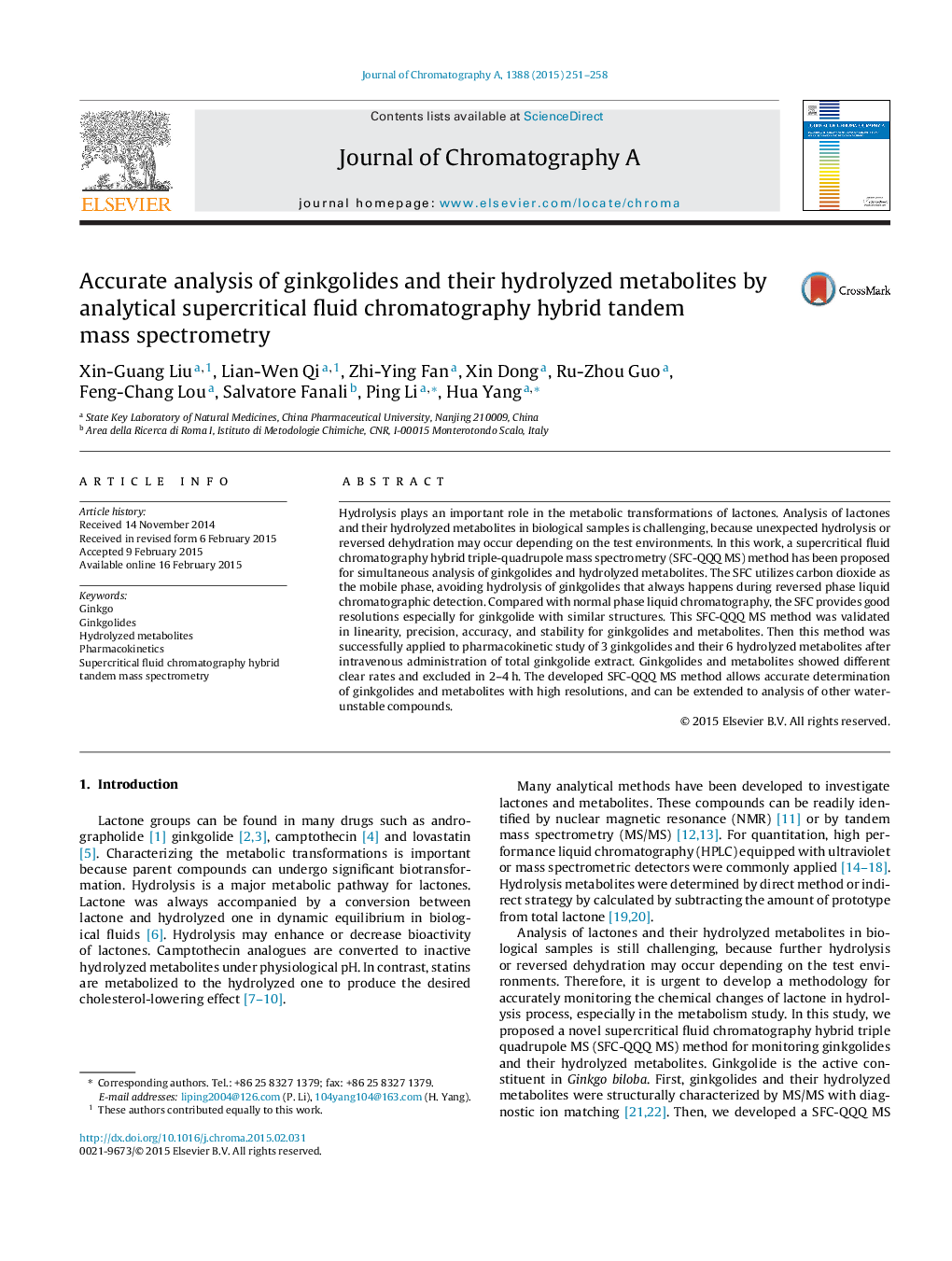| Article ID | Journal | Published Year | Pages | File Type |
|---|---|---|---|---|
| 1201912 | Journal of Chromatography A | 2015 | 8 Pages |
•A method of accurate analysis ginkgolides and their hydrolyzed metabolites was proposed.•The fragmentation behavior of ginkgolide isomers was investigated.•The SFC avoids hydrolysis of ginkgolides that always happens during RPLC.•Compared with NPLC, SFC provides better retention behaviors for polar ginkgolides.•Relative PK parameters of 6 hydrolyzed ginkgolides were determined by relative exposure method.
Hydrolysis plays an important role in the metabolic transformations of lactones. Analysis of lactones and their hydrolyzed metabolites in biological samples is challenging, because unexpected hydrolysis or reversed dehydration may occur depending on the test environments. In this work, a supercritical fluid chromatography hybrid triple-quadrupole mass spectrometry (SFC-QQQ MS) method has been proposed for simultaneous analysis of ginkgolides and hydrolyzed metabolites. The SFC utilizes carbon dioxide as the mobile phase, avoiding hydrolysis of ginkgolides that always happens during reversed phase liquid chromatographic detection. Compared with normal phase liquid chromatography, the SFC provides good resolutions especially for ginkgolide with similar structures. This SFC-QQQ MS method was validated in linearity, precision, accuracy, and stability for ginkgolides and metabolites. Then this method was successfully applied to pharmacokinetic study of 3 ginkgolides and their 6 hydrolyzed metabolites after intravenous administration of total ginkgolide extract. Ginkgolides and metabolites showed different clear rates and excluded in 2–4 h. The developed SFC-QQQ MS method allows accurate determination of ginkgolides and metabolites with high resolutions, and can be extended to analysis of other water-unstable compounds.
